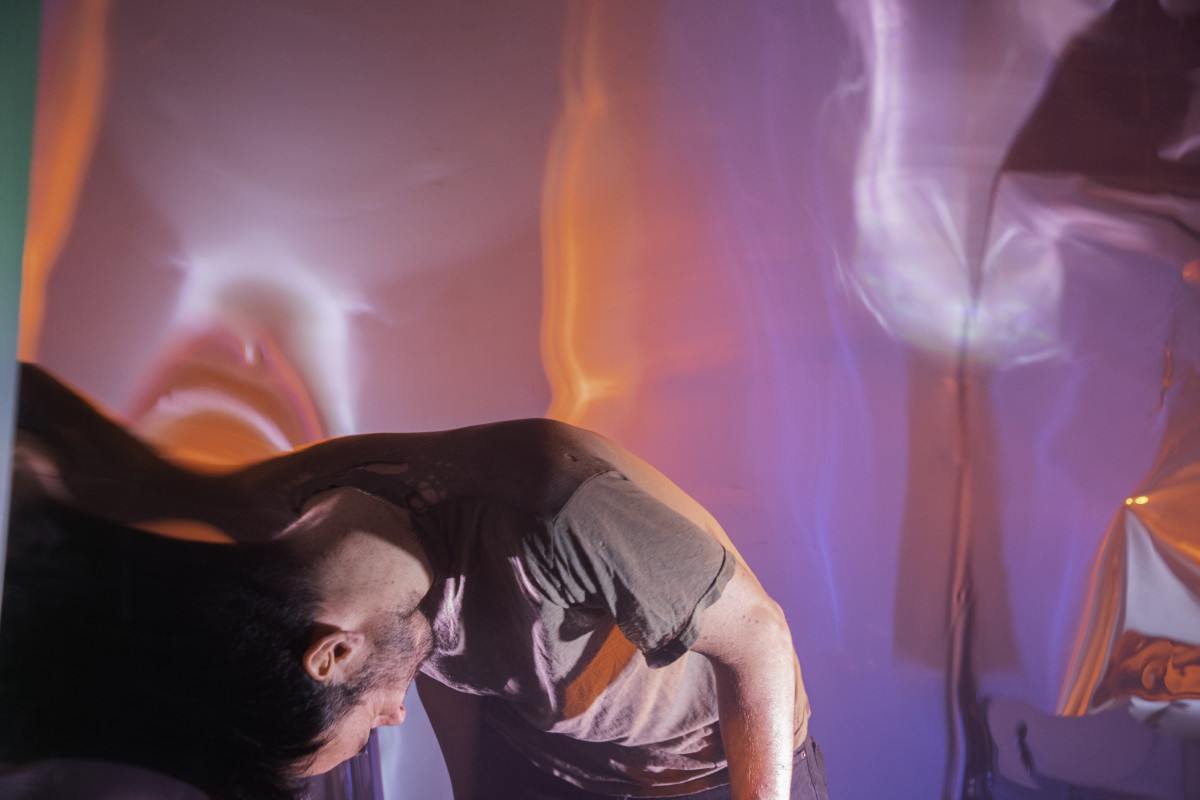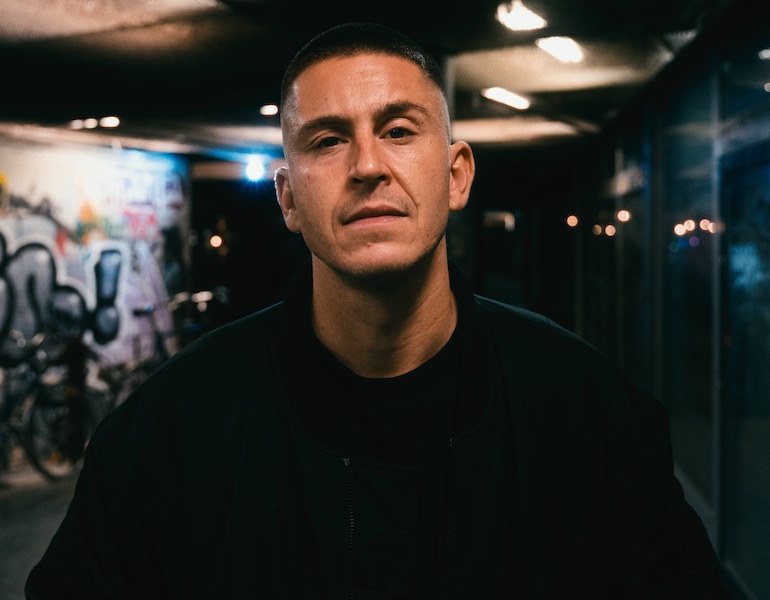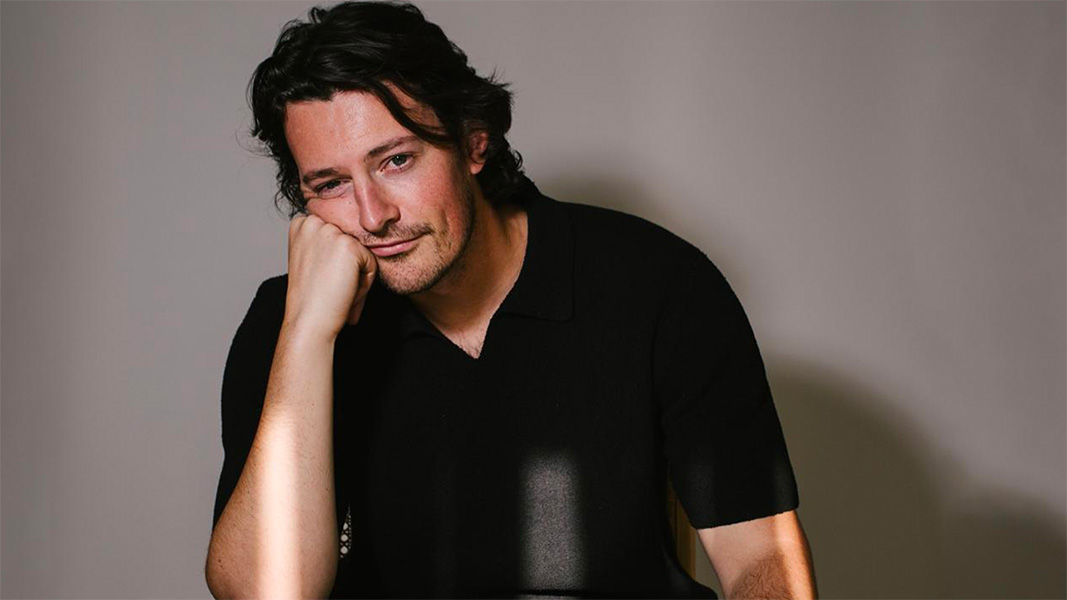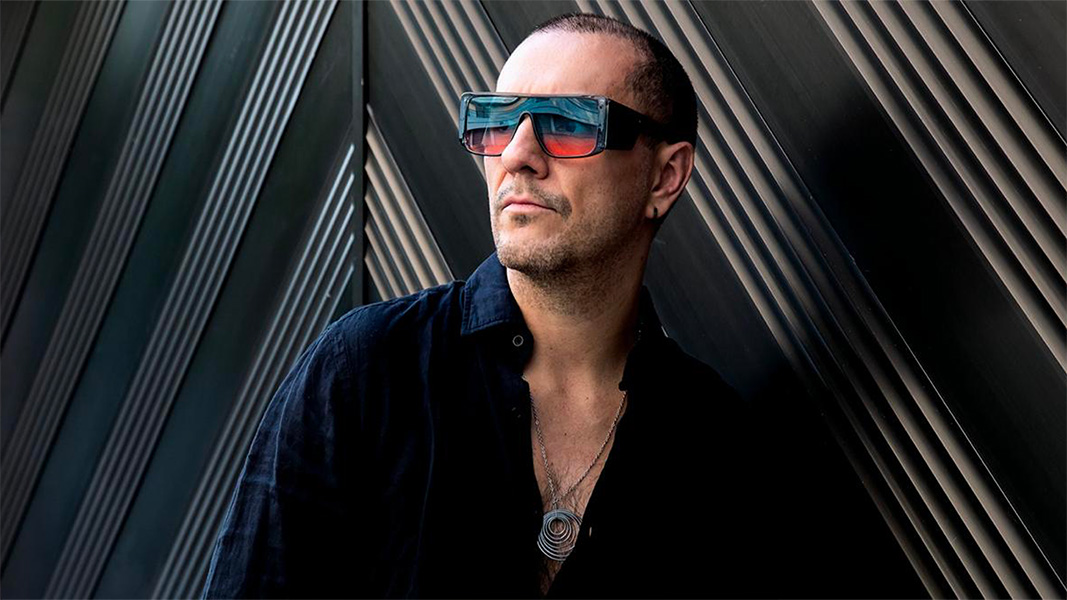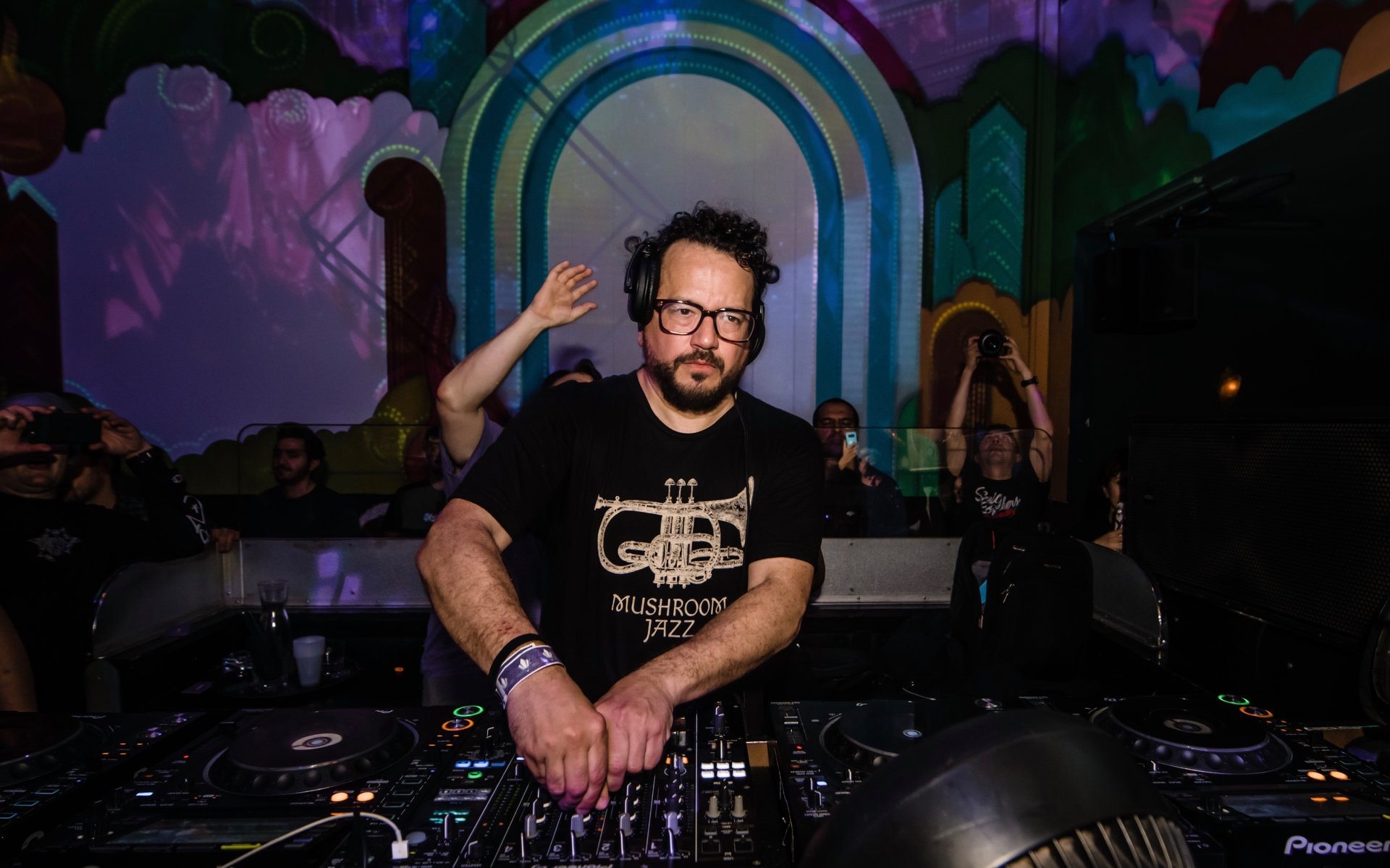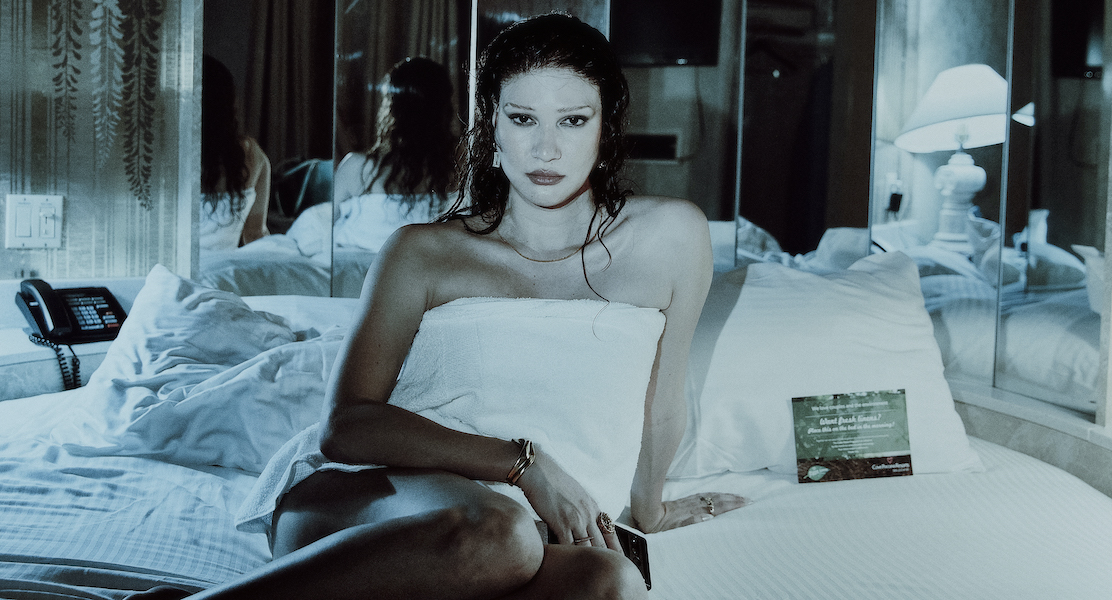A few weeks ago we had the opportunity to sit down and speak with Bossa Nova Civic Club owner John Barclay about arguably one of the most interesting projects in techno today. Under his new alias Liquid Soap John is leaving the norms of modern day techno behind and attempting to blaze a trail of his own. With an underlying narrative of fantasy warfare, this certainly isn’t you average techno record which is coming out on 2MR. But, with a finely tuned ear for quality electronic music from regularly putting on some of the best parties in New York City, Naja Warfare is a step into the murky unknown for a genre that can so easily fall into complacency. We spoke to John about his childhood, the inspiration for this new record and his essential part in repealing the infamous cabaret laws in New York City below.
WWD: Hey John, so firstly thank you for taking the time to speak to us. With this new record, I personally don’t think I have seen a record like this before. I suppose every now and then you see an artist dedicate a record to a particular time or place for example Omar S’s 1992 or Ben Klock & Marcel Dettmann’s first release on Ostgut Ton. But what you seem to have created with this most recent record seems to be just on another plain, in another universe even. Where did this idea for this whole project come about?
JB: Yeah, I suppose I have always been into these things. You know I have always been into these themes of history and of fantasy. I like these really over the top movies and stuff like that. On top of this I have been making music since I was 15 that I think is probably more on the rambunctious side of things. I have never really been into minimalism. I have always been into this over the top, fantastic aesthetic and so a lot of the tracks and riffs that I was working on had these common themes.
WWD: And for the project itself. Was it the idea or the music that happened first. From an outside perspective it’s hard to figure out from such a complex project.
JB: You know I think they both kind of happened at the same time. You know if I were skilled enough I would write a fantasy novel. But I’m not. But that is what I would like to do. You know, I would like to be Peter Jackson or something. But I was writing some tracks that had these elf and magical noises in them just because I like how it sounds and I like thinking about that stuff. And then the next track had some sword noises and it kind of struck me that they kind of work together and I put them back to back and began to think this could be an EP or something. And then I took it one step further and thought why don’t I just elaborate on this whole over the top fantasy theme and let my mind going places with it.
WWD: From an outside perspective it seems to be a hell of a lot of thought that has gone into this record. Do you think this is something that’s missing from your modern day techno record. Where its just seems to be artists putting out a record full of bangers and not putting and thought behind it?
JB: I mean, I love everything that’s happening in the techno world at the minute. But for me I’ve always thought about things differently. I think techno for most people now is very Berlin influenced where its all about really clean sort of tunnelling repetitive music and almost all of it has a very distinct and similar aesthetic. You could definitely make the argument that people aren’t taking that much risk with theme and stuff. And I think its great but its just not me though. I have always been stuck in high school when it comes to music. I like a lot of explosions and risks, if that makes sense.
WWD: Thats funny that you mentioned risks. That reminds me of something a fellow New Yorker said a couple of years ago, Reade Truth. But he spoke about one thing that annoys him about techno nowadays is that people really don’t take risks. I suppose it’s just a funny similarity. Maybe its just a New York thing where you are more willing to take risks and push the boat out a bit more.
JB: Yeah I think when the techno world shifted over to Berlin is when that started. I think they are a little more uniform, and I don’t wanna hate on Berlin too much but I would say they take less risks. They do a really good job of what they are doing, but classic New York dance music is a little more frenetic and more exciting in general. I think you could say that about British rave and stuff like that. But in New York there are some harder fast stuff and some weird internet shit happening too so its not like everybody is doing the exact same thing here. But the RA style stuff that’s really established is.
WWD: You could maybe say that if you want to make a big techno track that will probably do well there is kind of an equation.
JB: Oh yeah for sure. Precisely.
WWD: When you mentioned Berlin, and referring back to your work on repealing the cabaret laws along with your outspokenness on the MARCH raids too. In comparing New York to Berlin, where it’s very Laissez-faire where they are kind of free to do whatever they want so long as they are not hurting anybody. Do you think constantly being under this threat and pressure from government establishments has helped establish New York City techno in a very different way where people are more willing to take a risk as you said.
JB: Yeah I think you are right about that. One thing in general I think if we are comparing New York to Berlin is that in Berlin, you can go out on a Friday night and you can stay out for 18 or 20 hours or whatever. So I suppose it’s all about like pacing yourself you know? You see people dancing and it’s all like these minimal dance moves. Where NYC you have 6 hours to just go bananas and so you see people just going hammer you know, they go all out! You don’t have as much time to get it all in. So its always a lot more explosive or whatever you want to call it.
WWD: How much of your environment has been reflected in this record? Either from your time being around Bossa Nova or New York City as a whole has been an influence in this record.
JB: In terms of the sounds and the music I am definitely shaped by music I am surrounded by. Just like 120 BPM sort of grime techno. In terms of the themes and stuff like that probably has less to do with new York and more to do with what I gravitate towards. I get stoned and I’m interested in fantasy and historical subjects. My father was in the military and I grew up on military bases and every kid on the base was obsessed with war growing up. It’s not like I’m a war monger, but I’m always thinking about historical battles, Ancient Rome and bullshit like that. So they sort of combined in this way on this record I think. But this is a good way for me to combine the two things I am really interested in which is this whole dance thing and ancient battles and ancient warfare.
WWD: This record is coming out on a new alias for you, Liquid Soap. With this new alias, is this the start of something bigger? Will there be more to this project and these themes or what will happen with this?
JB: I hope so yeah! I have a lot of stuff that I’m sitting on at the minute so I would like to release it soon and tour but we will see. It has taken me so long to get to this. Like this is my first solo release, my last project was DUST. So it has taken me a while into my career to get to this point.
WWD: Yeah, your project DUST which was with two other artists. How different was that experience from what you are doing now?
JB: There are pros and cons. It has taken me a lot longer on this record. I think it is a lot harder to self motivate if you don’t have someone keeping you in check. But also I get to do whatever I want. To have such a specific theme like this, before I would have felt sort of dumb bringing stuff like this up. Being in a group is just so difficult within itself. Its like dating several people at once where every single thing is a debate, it wears you down. And then the specifics of it are very difficult too, planning touring, stuff like that is a pain in the ass. But I miss it too. The comradely of it and good bonding time is something I miss. But there’s pros and cons for sure.
WWD: With all the stuff you have going on between Bossa Nova and your soda business too. How hard is it to balance everything?
JB: Well, you know each thing Im not really doing full time. So its like Bossa isn’t that difficult. I know a lot of people, they have one job and they work 50 hours a week. Where I’m doing probably 20 hours a week at Bossa and 15 with this soda company. For the moment both of them are doing pretty good so my life isn’t that tough, knock on wood. But you know, whenever there’s a crisis in any of these aspects of my life it often becomes very nightmareish. But I built a studio in my apartment and this is something I do when I come home at night, so its great. Its therapeutic for me and I hope that everybody will like the music and I’ll make billions of dollars and tour the world then date Rhianna. But, more than anything it feels good for me to have something to work on and to create. The music stuff hasn’t really added onto stress in my life. Now granted I’m not touring and I haven’t even released anything yet. But at this stage it definitely makes everything better in my life.
WWD: How long has this records been in the works.
JB: Some of these tracks are almost maybe four years old. But the majority of them are, I would say maybe just over a year old. You. Know even though I’ve never released anything by myself I have been making music by myself since I was maybe 15 years old. I started shopping the idea of this release around I would say about a year ago. When I had just over about half of the project finished.
WWD: And the record is coming out on 2MR. How did this become the home for this project of yours?
JB: Well they released a couple of our DUST records and they were great to work with. I’m also friends with them and a lot of my friends are on this label. I don’t know. Everything about them is good. They believe in the vision and they’re honest.
WWD: Stepping away from this release and focusing on something else that you have been a key member, which is the repealing of the cabaret laws. Particularly with you running Bossa Nova, have you noticed a shift in the environment in the club scene in New York city?
JB: Oh yeah 1000%! You know the cabaret law was more of a symbol. The main thing is we sort of intimidated the New York city government into treating people in nightlife as human beings. You know, we just kind of shone a light on how badly they were treating everybody and how absurd and self defeating it was. Where as now they have not done a full 180, but they have definitely backed off a lot of these harsh tactics and stepped back and said, “You know maybe we were wrong and we hadn’t really examined these anti-nightlife policies in forever and so a lot of these have existed since the jazz age and there was most certainly malicious intent but they haven’t really reopened them or had to think about these policies until all the activism. And so now they’re just backing off on some of the more obscured aspects of the nightlife enforcement. They’re not raiding people often and MARCH enforcement has dropped. I think they have gone down to half of what they were. I think they’re just letting nightlife breathe a little bit more. It’s not perfect, its really far from perfect, but its a lot better than it was.

